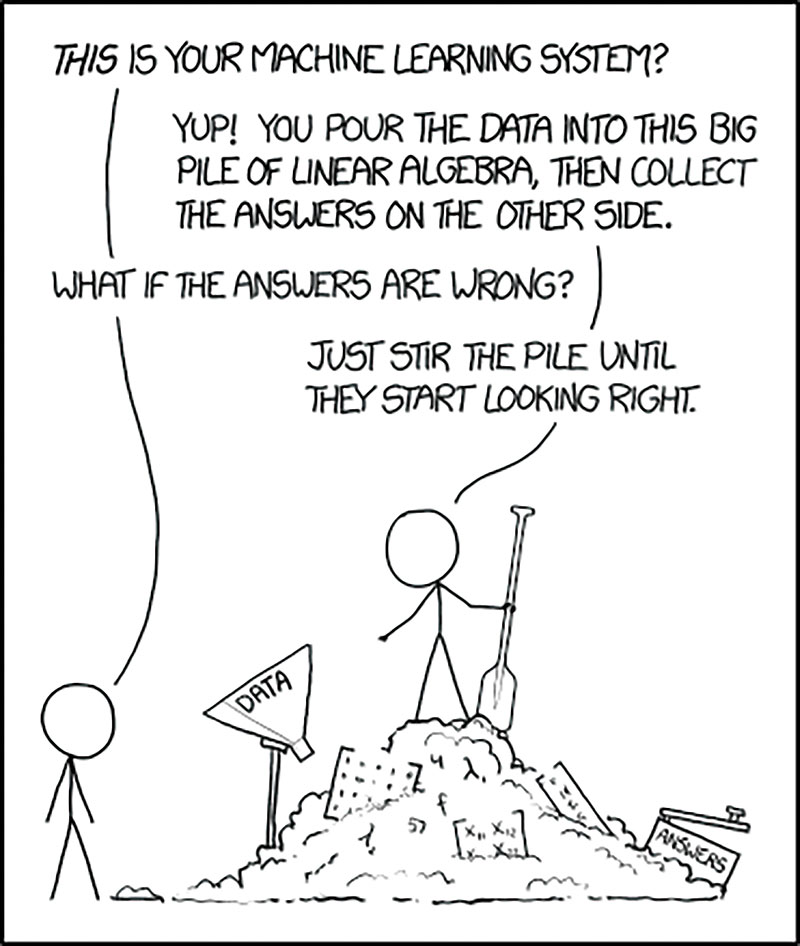Dive into Machine Learning
Spring
2022
Feature
Dive into Machine Learning
Kendra Redmond, Editor
Advice from the experts
We live in the age of open data sources, in other words, free data platforms and free data. Download those free platforms and use them to develop the code. - Helen Jackson
Have confidence. Most employers in this field want to hire smart people who can work independently and think quickly. There is a vocabulary difference between the private sector and what you learn in school, but it’s just vocabulary. - Sean Grullon
Garbage in, garbage out. Learn about the whole life cycle—data collection, data engineering, machine learning models, training the models, and evaluating models properly and in context. - Vijay Janapa Reddi
It takes a while to become acquainted with computing, but it’s a linear task. Get online, try projects, and mess with the data to see what changes the output. - John Burkey
If you’re interested in machine learning, also be interested in all the other computational methods and gain familiarity with them. - Michelle Kuchera
There are four or five major skills in computing: programming, debugging, using the tools, performance profiling, and testing/analytical understanding of when your products are ready. For each of those things it’s important to think about how you can get real experience. - Chris Rowen

Resources for getting up to speed
There are many widely available, internet-based resources on machine learning. This list is compiled from recommendations from the sources in Machine Learning, Physics, and Your Future and Machine Learning at Work.
Learning Python
- Machine learning is done in Python. Google’s Python Class and Microsoft’s Introduction to Python are good free online classes.
Blogs and background
- To get a sense of machine learning, its vocabulary, and what’s happening in the field, check out blogs like Google AI, Facebook AI, Berkeley AI Research, and Stanford AI Lab.
- Towards Data Science is another great blog if you’re just getting started. They have a lot of introductory articles that explain machine learning and deep learning algorithms and how to get started.
Setting up your system
- Scikit has a package for Python for machine learning with a good overview of machine learning algorithms and how to incorporate them in Python.
- Environments like TensorFlow (Google) and PyTorch (Facebook) allow you to quickly build models for whatever kind of data you have.
Online courses
- Platforms like edX, Coursera, Udemy, and Udacity have free or low-cost Python classes and machine learning classes with projects that you can complete and show a prospective employer. Andrew Ng’s machine learning course out of Stanford is very popular, and it’s free on Coursera.
- HarvardX’s Tiny Machine Learning (TinyML) and Google are collaborating on a series of courses focused on TinyML. The courses cover topics from the fundamentals of machine learning to collecting data, designing and optimizing machine learning models, and assessing their outputs. The first three courses are available now on edX, tinyml.seas.harvard.edu/courses/.
- The Google Cloud AI Platform has tools, videos, and documentation for data science and machine learning, developers.google.com/learn/topics/datascience. The following resources may be especially helpful:
- Google’s codelab “TensorFlow, Keras and deep learning, without a PhD”
- Online learning channel, youtube.com/user/googlecloudplatform
- Product documentation, cloud.google.com/docs
- fast.ai has courses, tools, and articles for people interested in getting into machine learning.
Getting data
- Don’t have data? There are public domain data repositories with data on almost anything you could want, and most machine learning courses will direct you to them. Kaggle has lots of public datasets. //
